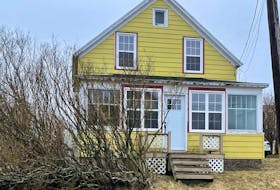Is Quebec Premier François Legault’s offer to pay homeowners $200,000 to abandon their flood-prone houses an example of government largesse, or an unjust drop in the bucket for residents whose homes were once worth far more?
The answer is complex, because when it comes to building homes on flood plains, there are several players who may share the blame, including the federal, provincial and municipal governments, the homeowners, and a capricious global weather system.
“The problem is responsibility is shared between a large number of actors, but the responsibilities are ambiguous enough that it’s very difficult to hold any one party accountable,” said Daniel Henstra, a University of Waterloo professor specializing in flood-management policies, and a fellow at the Centre for International Governance Innovation.
“Governments are increasingly getting tired of paying to repair the same houses over and over, so when it comes to fairness as a general principle, they have to also look at whether it’s fair for the public treasury — that is, taxpayers — to be repeatedly bailing out these people who have these repeated flood losses.”
On Sunday, Legault said the government was adjusting its programs to funnel compensation money to residents more quickly. It’s reducing the maximum amount for repairs, down from $159,000 offered during the 2017 floods. Now the government will pay out a maximum of $100,000 in cumulative flood compensation, after which residents could receive up to $200,000 to move from flood-prone areas.
That offer came as little solace to residents like René Rousseau, who has been trying to sell his $900,000 home on the Laval island of Île Bigras for $700,000 with no luck, mainly because the for-sale sign on his front lawn is currently underwater.
The mayor of flood-stricken Gatineau, Maxime Pedneaud-Jobin, noted that people require not only the value of their home, but what it will cost them to live in a new location.
“If we ask people to leave, they must leave with dignity, and that means with enough financial means to have a quality of life that would be equivalent elsewhere. For many people, $200,000 for a house is pretty limited.”
Montreal Mayor Valérie Plante said the need for people to move out of homes in flood-prone areas is a delicate subject.
“This is a subject that we must approach with gentleness. … We’re talking about whole neighbourhoods in some cases,” she said Tuesday. “For those who live in places that will be systematically flooded year after year, we do have to raise questions.”
Plante said the price for compensating homeowners should be set regionally, because there are huge differences in property values between the Beauce, for example, and Montreal.
There is a common public reaction to blame the homeowner, Henstra noted. But often homeowners are not advised of the risks, and it’s up to municipalities to decide whether or not developers can build and sell properties, he said, which shifts the blame to the cities.
Municipalities may have little knowledge of flood zones, however, due to a lack of flood mapping that indicates current and future risks, which is a provincial responsibility. That issue is common across Canada, where there has been long-standing confusion over who is responsible for what, and a lack of conversation between different levels of government, Henstra said.
The problems are exacerbated by the fact that shifting weather patterns and climate change have increased flood hazards.
Since the floods of 2017, Quebec has moved ahead of many provinces, creating a flood action plan and ordering flood maps for the whole province by 2021. The offer of $200,000 to homeowners can be seen as progressive, Henstra said, in that the government could also leave it up to the free market to decide, in which case flood-prone houses might fetch a far lower price.
The offer of compensation to move is a major improvement over past practice, such as when Quebec paid homeowners in the flood zone of the Richelieu Valley to rebuild in the same area after the 2011 floods, said Pascale Biron, an expert in river dynamics and professor in Concordia University’s department of geography, planning and environment. Also promising is that Quebec has given the local responsibility for flood mapping to the Communauté métropolitaine de Montréal, which oversees the 82 municipalities of the greater Montreal region, as opposed to handing the reins to individual municipalities whose land-development decisions can be influenced by the promise of property tax benefits.
“The bottom line is that it’s positive that we are now realizing perhaps this is not sustainable and we have to think differently,” Biron said.
“But we have to be cautious and not use the one-size-fits-all solution and force everyone to leave without taking into account the local situation.”
Marian Scott of the Montreal Gazette contributed to this report
Related
Copyright Postmedia Network Inc., 2019








